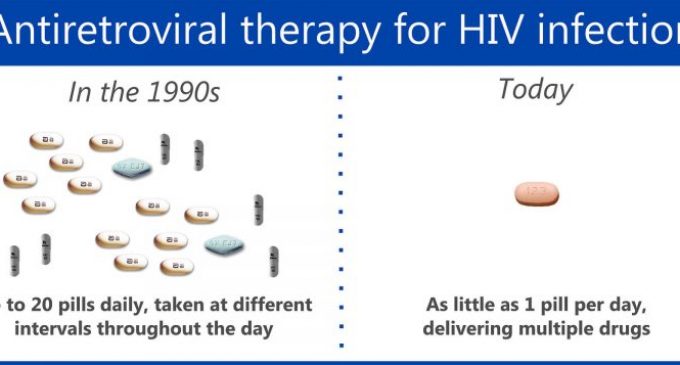HIV Treatment Development Extends Life Expectancy by 10 Years

According to a new study, the life expectancy of 20-year-olds starting HIV treatment has increased by a decade in the EU and North America.
A massive new study from the UK was published today in The Lancet HIV. The study tracked how many HIV patients died during the first three years of HIV treatment, their cause of death, viral load, immune cell count and whether they were infected through injecting drugs. Based on the data, the study projects that the life expectancy of 20-year-olds starting treatment for HIV has increased by around a decade.
Analyzing data for 88504 people with HIV who started HIV treatment between1996 and 2010 from 18 European and North American studies, the researchers show that between 1996 and 2013, the life expectancy of 20-year-olds treated for HIV increased by 9 years for women and 10 years for men.
The improvements are thought to result from less toxic antiretroviral therapies with more drug options for people infected with a drug-resistant HIV strain, better adherence to treatment, improved treatment of co-occurring conditions and opportunistic infections, and increased use of screening and prevention programs for conditions such as cardiovascular disease and cancer.
“Our research illustrates a success story of how improved HIV treatments coupled with screening, prevention, and treatment of health problems associated with HIV infection can extend the lifespan of people diagnosed with HIV. However, further efforts are needed if life expectancy is to match that of the general population,” says lead author Adam Trickey from the University of Bristol, UK.
Still, the improvements were not seen in all people with HIV, with life expectancy of people who were infected through injecting drugs not increasing as much as in other groups. “In drug users, we must promote therapy and improve access to therapy to treat addictions as well as increasing access to hepatitis C treatment for people with both infections,” says Trickey. “Although most people are likely to start treatment soon after diagnosis of HIV, this will only result in improved survival overall if the problems of late diagnosis and treatment access are addressed.”
Limitations of the study include that the results could also be affected by changes in behavior and a lack of data for death rates in the oldest age group. Yet, it highlights the progress that combination antiretroviral therapy (ART)has brought to the field. This HIV treatment is based on a triple combination of drugs designed to suppress the retrovirus, and big players like Gilead and GSKare racing to make these even more effective.
While this is great news for HIV patients, with up-and-coming biotechs like Abivax and Mologen working on newer, innovative therapies there is hope that it won’t take that much longer until biotech finds an HIV cure once and for all.
Written by Melanie De Almeida






